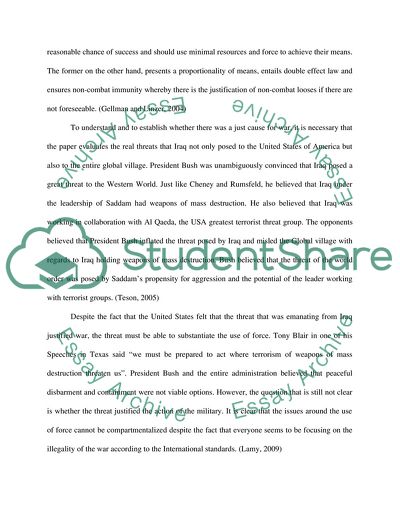Cite this document
(Should the United States of America have Become Involved in Iraq Essay, n.d.)
Should the United States of America have Become Involved in Iraq Essay. https://studentshare.org/history/1880320-should-the-united-states-have-become-involved-in-bosnia-kosovo-iraq-afghanistan
Should the United States of America have Become Involved in Iraq Essay. https://studentshare.org/history/1880320-should-the-united-states-have-become-involved-in-bosnia-kosovo-iraq-afghanistan
(Should the United States of America Have Become Involved in Iraq Essay)
Should the United States of America Have Become Involved in Iraq Essay. https://studentshare.org/history/1880320-should-the-united-states-have-become-involved-in-bosnia-kosovo-iraq-afghanistan.
Should the United States of America Have Become Involved in Iraq Essay. https://studentshare.org/history/1880320-should-the-united-states-have-become-involved-in-bosnia-kosovo-iraq-afghanistan.
“Should the United States of America Have Become Involved in Iraq Essay”. https://studentshare.org/history/1880320-should-the-united-states-have-become-involved-in-bosnia-kosovo-iraq-afghanistan.


